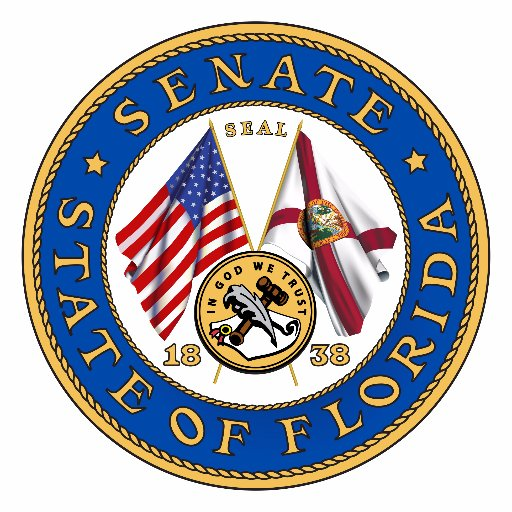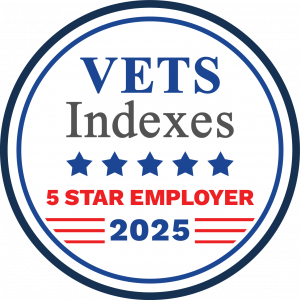The Florida Senate today considered House Bill (HB) 7063, Taxation, sponsored in the Senate by Senator Blaise Ingoglia (R-Springhill), chair of the Senate Committee on Finance and Tax. The bill is the final tax relief bill in a session that delivered $2.7 billion in broad-based tax savings to families and businesses across the state, with a focus on short-term as well as permanent tax relief on key items utilized by growing families and seniors. HB 7063 will be considered for final passage prior to the conclusion of the 2023 Legislative Session tomorrow.
“Florida cannot independently fix or outpace runaway inflation caused by excessive spending and socialist policies in Washington. While the federal government just keeps printing money, here in Florida under the leadership of Governor DeSantis and the Florida Legislature, we are saving it and living within our means, so we can reduce or eliminate taxes charged when Floridians purchase key items needed to run a household, raise a child, or age with dignity,” said Senator Ingoglia.
“Inflation has led to significant increases in costs that are negatively impacting families, especially our most vulnerable. However, we are working to ease the pain with broad-based sales tax relief that will be very meaningful for families and seniors. This bill creates tax relief opportunities for growing families with new babies, or kids heading back to school, for Floridians looking to prepare their homes for severe weather, and for Floridians, young and old, who want to get out and enjoy all the beautiful natural resources and fun events the free state of Florida has to offer this summer,” said Senate President Kathleen Passidomo (R-Naples).
SHORT-TERM BROAD-BASED SALES TAX HOLIDAYS
Establishes Two Back-to-School Sales Tax Holidays
The legislation creates two, 14-day “back-to-school” sales tax holidays from July 24 – August 6, 2023, and January 1 – January 14, 2024, for clothing, footwear, and backpacks costing $100 or less, school supplies and learning aids costing $50 or less, and personal computers or computer-related accessories, including non-recreational software, costing $1,500 or less.
Establishes Two Two-Week 2023 Disaster Preparedness Sales Tax Holidays
The legislation creates two 14-day “disaster preparedness” sales tax holidays from May 27, 2023 – June 9, 2023, and August 26, 2023, — September 8, 2023, for disaster preparedness supplies. Some examples of tax-free items include: flashlights and lanterns costing $40 or less; reusable ice costing $20 or less; radios costing $50 or less; tarps and ground anchors or tie down kits costing $100 or less; coolers and portable power banks costing $60 or less; batteries and fuel tanks costing $50 or less; smoke detectors, fire extinguishers, and carbon monoxide detectors costing $70 or less; and generators costing $3,000 or less.
The holiday also includes a number of items related to the safe evacuation of household pets. Common household consumable items that may helpful with disaster cleanup are also included. For example, laundry detergent, toilet paper and paper towels, soap, sunscreen, and various household cleaning products, with a sales price of $30 or less.
Expands Freedom Week to Freedom Summer, a 3-month Sales Tax Holiday on Recreational Items
From May 29 – September 4, 2023, purchases of admissions to music, sporting, and cultural events; tickets to movies and museums; single admission or season tickets to theatre and dance performances; state park admission and annual passes; and use of fitness facilities will be tax free. Tickets, memberships and passes, purchased during this time for use from May 29 – December 31, 2023, are tax free.
The Freedom Summer Sales Tax Holiday also applies to sales of certain boating and water activity equipment and supplies, camping equipment and supplies, fishing equipment and supplies, general outdoor supplies (including sunglasses, sunscreen, and grills), residential pool chemicals, supplies and parts, and children’s toys and athletic equipment.
Establishes the 2023 Skilled Worker Tools Sales Tax Holiday
The legislation creates a seven-day sales tax holiday from September 2 – 8, 2023, for certain tools used by skilled trade workers. Tax-free items include certain hand and power tools, work boots, safety equipment, shop lights, toolboxes and belts, and plumbing and electrical equipment.
Sales Tax Free Gas Stoves, and Energy Efficient Appliances
The bill creates a one-year sales tax exemption from July 1, 2023 – June 30, 2024, on the retail sale of indoor gas ranges and stoves and certain energy efficient appliances including refrigerator/freezer units selling for $4,500 or less, and water heaters, washers or dryers selling for $1,500 or less.
Freezes Local Cell Phone and TV Tax
The bill freezes local communications services tax rates for three years. The local communications services tax rate in effect on January 1, 2023, may not be increased before January 1, 2026.
PERMANENT BROAD-BASED SALES TAX RELIEF
Baby and Toddler Products
The bill creates a permanent sales tax exemption on the retail sale of baby and toddler diapers, wipes, clothing, shoes, strollers, cribs and many other baby and toddler safety items. This includes baby and toddler clothing sized accordingly for children age five or younger. Florida is home to more than one million children under age five, and welcomes nearly 600 newborns each day. In the first year of a child’s life, parents can expect to use approximately 3,000 diapers, or an average of eight diapers per day.
Hygiene Products
The bill creates a permanent tax exemption on the retail sale of adult diapers and incontinence products and oral hygiene products, including toothbrushes, toothpaste, and floss.
Agricultural Fencing
The bill creates a permanent sales tax exemption on materials used to construct or repair permanent or temporary fencing used to contain, confine, or process cattle, including gates and energized fencing systems, used in agricultural operations on lands classified as agricultural lands.
Renewable Natural Gas Machinery and Equipment
The bill creates a permanent sales tax exemption on the purchase of machinery and equipment that is used in the production, storage, transportation, compression, or blending of renewable natural gas that is used as transportation fuel or for electric generation or is of a quality capable of being injected into a natural gas pipeline.
Firearm Safety Devices
The bill creates a permanent tax exemption on the retail sale of gun safes and trigger locks, and other devices designed for the safe storage of firearms, or designed to prevent the firearm from being operated without deactivating a secondary safety device by using a key or combination.
PROPERTY TAX RELIEF
- Allows disabled veterans and surviving spouses who are entitled to complete homestead exemptions to receive refunds of taxes they had to pay in the year they purchase a homestead.
- Clarifies that disabled veterans and surviving spouses may transfer their homestead exemptions to another property.
- Expands the exemption for surviving spouses of first responders killed in the line of duty to include spouses of federal law enforcement officers.
- Prohibits the levy of special assessments on agricultural lands.
- Clarifies that parsonages, burial grounds, and tombs owned by houses of worship are used for religious purposes, and are therefore exempt.
- Extends the educational property exemption to certain schools who lease property.
- Makes clarifying changes to Florida’s automatic property tax refund process for properties that are damaged and become uninhabitable.
BUSINESS TAX RELIEF
- Cuts the business rent tax from 5.5% to 4.5% beginning in December 2023.
- Creates a tax credit for investment in equipment to produce breast milk fortifiers.
- Increases the annual Brownfield Rehabilitation program cap by $25 million.
- Increases the annual credit limit for the Strong Families Tax Credit from $10 million to $20 million to help provide more child welfare services in Florida communities.
- Creates a tax credit for installing graywater treatment systems on residential property.
TAX RELIEF FOR WORKFORCE HOUSING
Senate Bill 102, Housing, by Senator Alexis Calatayud (R-Miami), was signed into law earlier by Governor Ron DeSantis. The legislation, entitled the Live Local Act, contains the comprehensive, statewide workforce housing strategy championed by President Passidomo designed to increase the availability of attainable housing options for Florida workers who seek to live in the communities they serve.
The Live Local Act includes several tax relief measures related to affordable housing, including among others:
Creates New Partnership with Businesses to Help Fund Workforce Housing
A new corporate tax donation program gives businesses the opportunity to contribute directly to the Florida Housing Finance Corporation to benefit the SAIL program instead of paying portions of their corporate and insurance premium taxes, up to a total of $100 million per year.
Increases Community Contribution Tax Credit Program Limits
The bill increases the annual amount of available tax credits to $25 million (from $14.5 million), further encouraging Florida businesses to make donations towards community development and housing projects for low-income persons.
Creates Sales Tax Refund for Building Materials
The bill provides for a refund of up to $5,000 per unit for sales tax paid on building materials for developments financed through the Florida Housing Finance Corporation, providing additional capacity for loans in the program.
Creates “Missing Middle” Property Tax Exemption
To encourage new or recently constructed and substantially rehabilitated developments to offer attainable units, the bill creates a tax exemption for these developments that set aside at least 70 units for affordable housing. Tax exemptions are targeted to moderate- and low-income brackets:
- Up to 80% AMI unit = 100% tax exemption for the unit (approximate income level of $62,650 for a family of four)
- 81% up to 120% AMI unit = 75% tax exemption for the unit (approximate income level of $62,651 to $94,000 for a family of four)
In addition to meeting affordable housing requirements (rent and income limits), rent for the set-aside units must be at least 10% below market rate.
ADDITIONAL TAX RELIEF MEASURES
Senate Bill 4A, Disaster Relief, by Senator Travis Hutson (R-St. Augustine), passed during a recent special session, provided property tax refunds for the portion of the year that homes were uninhabitable due to hurricane damage from Hurricanes Ian or Nicole.
Senate Bill 6A by Senator Nick DiCeglie (R-St. Petersburg), also passed during a recent special session, appropriated $500 million for a statewide toll relief program for frequent commuters, beginning on January 1, 2023, through end of the year. Customers using a two-axle vehicle with a Florida-issued transponder who use Florida’s Turnpike System and all other toll facilities in the state are eligible. Customers who engage in 35 or more toll transactions in a month will receive a 50 percent credit.
Background: Over the last several years, as state revenues have increased, the Florida Legislature has held the line on spending and prioritized broad-based tax relief for Florida’s families and businesses.
2022: House Bill 7071, delivered over $1 billion in broad-based tax savings to families across Florida, with a focus on long- and short-term sales tax relief. The legislation resulted in savings for Floridians preparing for Hurricane Season and the 2022-2023 school year, with added tax relief to benefit those raising young children, purchasing energy efficient appliances or skilled worker tools; as well as, individuals and families enjoying outdoor activities and events. With gas prices at an all-time high last year, a month-long gas tax holiday provided key relief for Florida families and businesses. The bill also eliminated property taxes for homeowners who suffered losses in the Champlain Towers condominium collapse in Surfside, Florida, and expanded existing property tax relief for deployed military service members, widows, widowers and blind or disabled Floridians.
2021: House Bill 7061 established Back-to-School, Disaster Preparedness, and Freedom Week Sales Tax Holidays, created a permanent tax exemption for independent living items, and expanded the tax credit for affordable housing. SB 50 prevented an unexpected tax hike on businesses by replenishing the unemployment compensation trust fund. The bill created a fair playing field for Florida businesses by requiring the collection of existing taxes that are owed, but not currently collected from out-of-state online retailers. Revenue derived from those collections is used to replenish the Unemployment Compensation Trust Fund depleted by the COVID-19 Pandemic, ensuring necessary compensation is available for Florida workers seeking re-employment. When the trust fund reaches pre-pandemic levels, the law automatically triggers a permanent reduction in the business rent tax.
2020: House Bill 7097 established Back-to-School and Hurricane Preparedness Sales Tax Holidays.
2018 and 2019: House Bills 7087 (2018) and 7123 (2019) established Back-to-School and Hurricane Preparedness Sales Tax Holidays, reduced the business rent tax, and created several exemptions related to hurricane response, preparedness and recovery.
2017: House Bill 7109 established Back-to-School and Hurricane Preparedness Sales Tax Holidays, created a sales tax exemption for feminine hygiene products, and reduced the business rent tax.
2016: House Bill 7099 permanently eliminated the sales tax for machinery and manufacturing equipment, and established a Back-to-School Sales Tax Holiday.
2015: House Bill 33-A permanently decreased the communication services tax on Floridians’ phones and television services, instituted a Back-to-School Sales Tax Holiday, and among other tax relief measures, eliminated the sales tax charged to returning service members and their families who purchased a vehicle overseas.
2014: House Bill 5601 established Back-to-School and Hurricane Preparedness Sales Tax Holidays; created permanent sales tax exemptions for children’s car seats, booster seats, and bicycle helmets; and provided a nearly $400 million reduction in vehicle registration fees. The legislation reduced certain annual fees paid to register a motor vehicle to the amount paid prior to 2009. In addition to other tax relief measures passed in 2014, this legislation provided annual fee relief to every Floridian who registers a car or truck.
Originally published at https://www.flsenate.gov/Media/PressReleases/Show/4459




